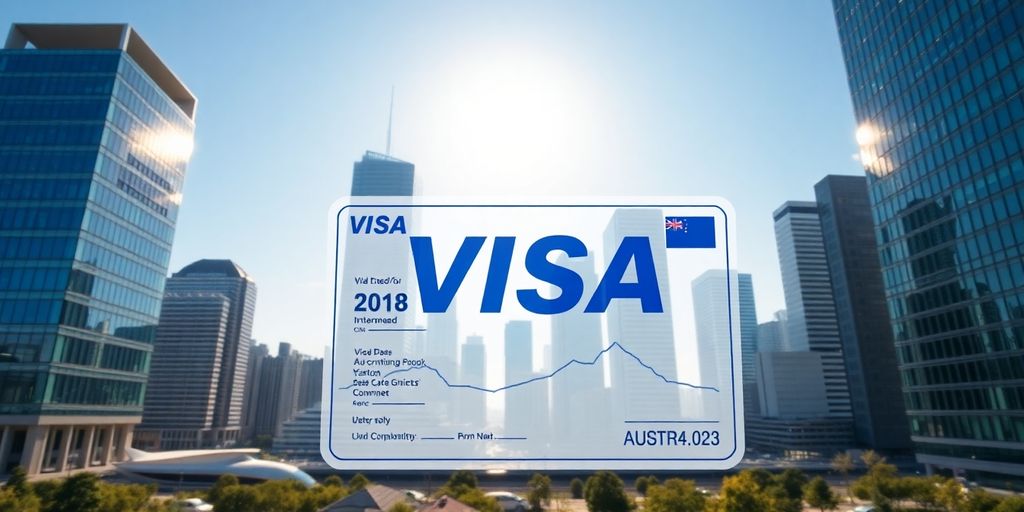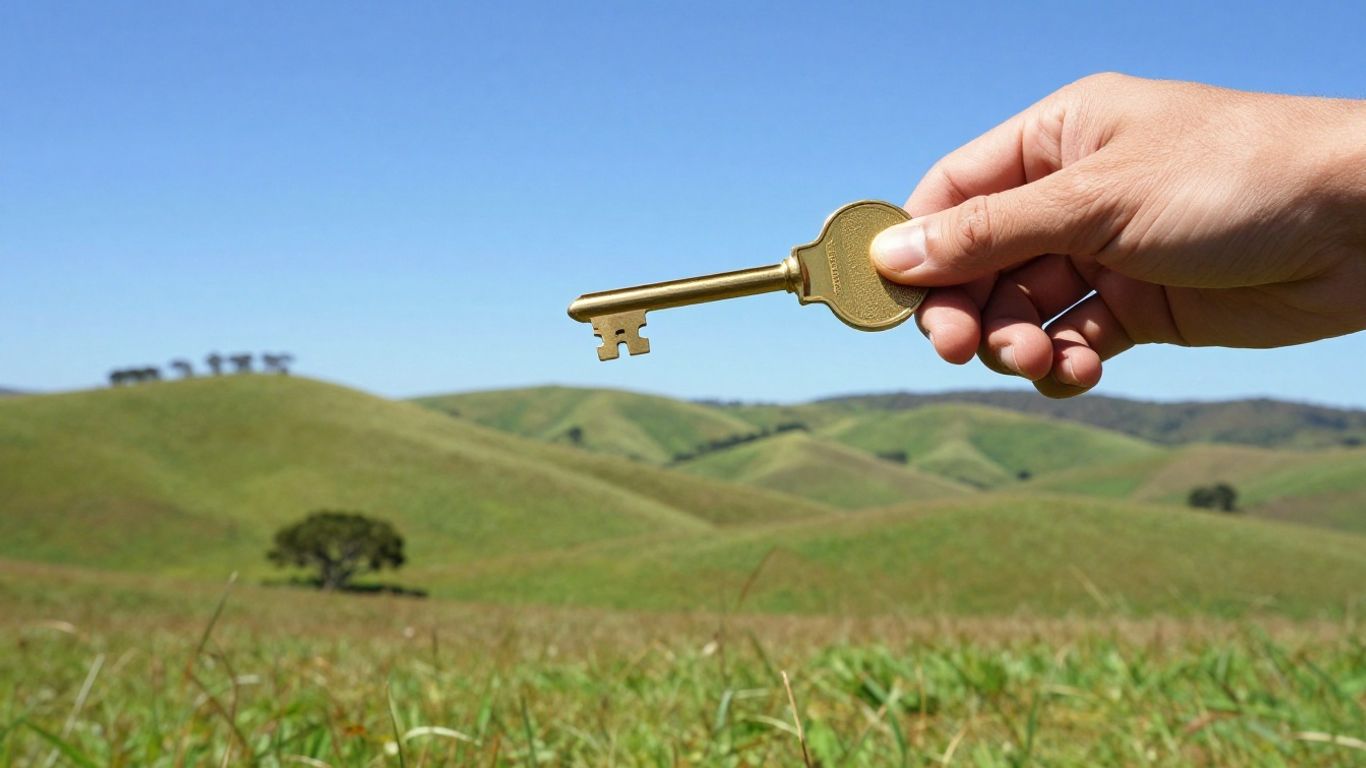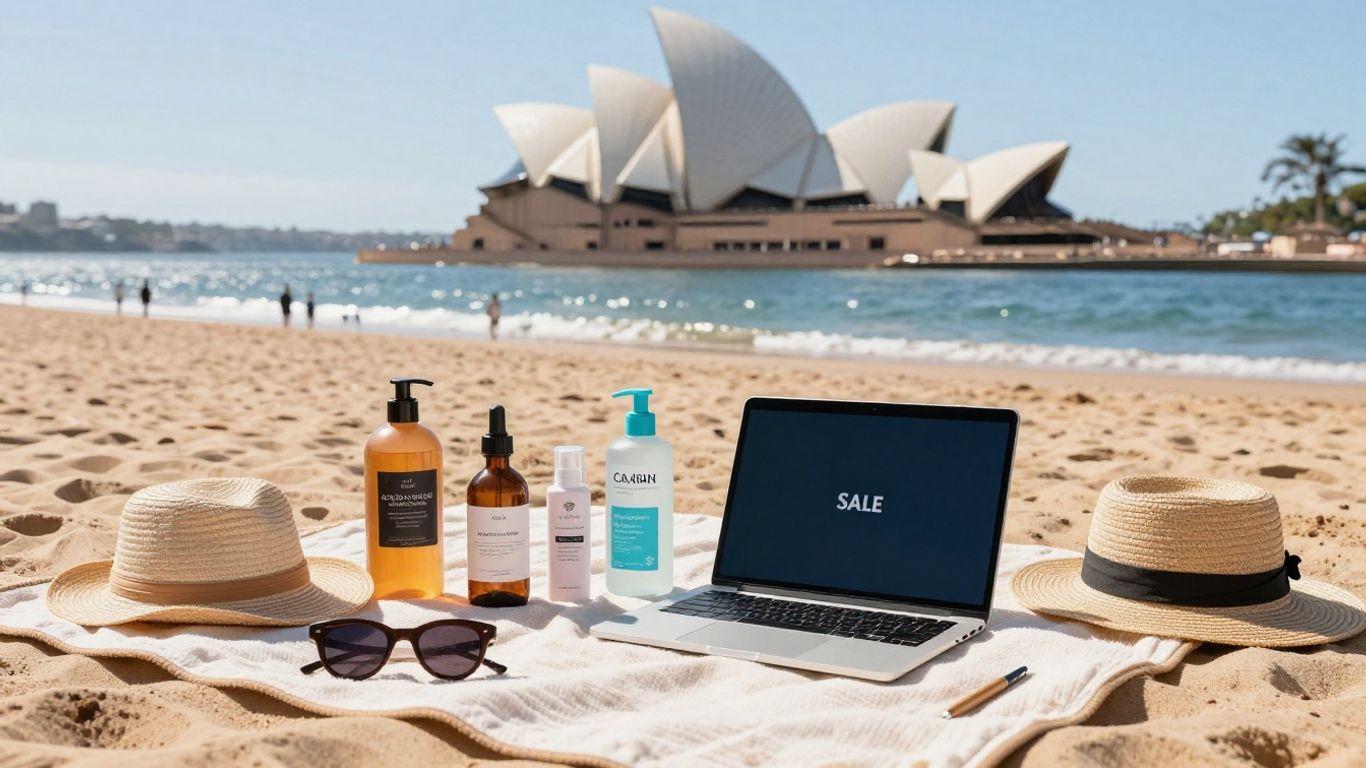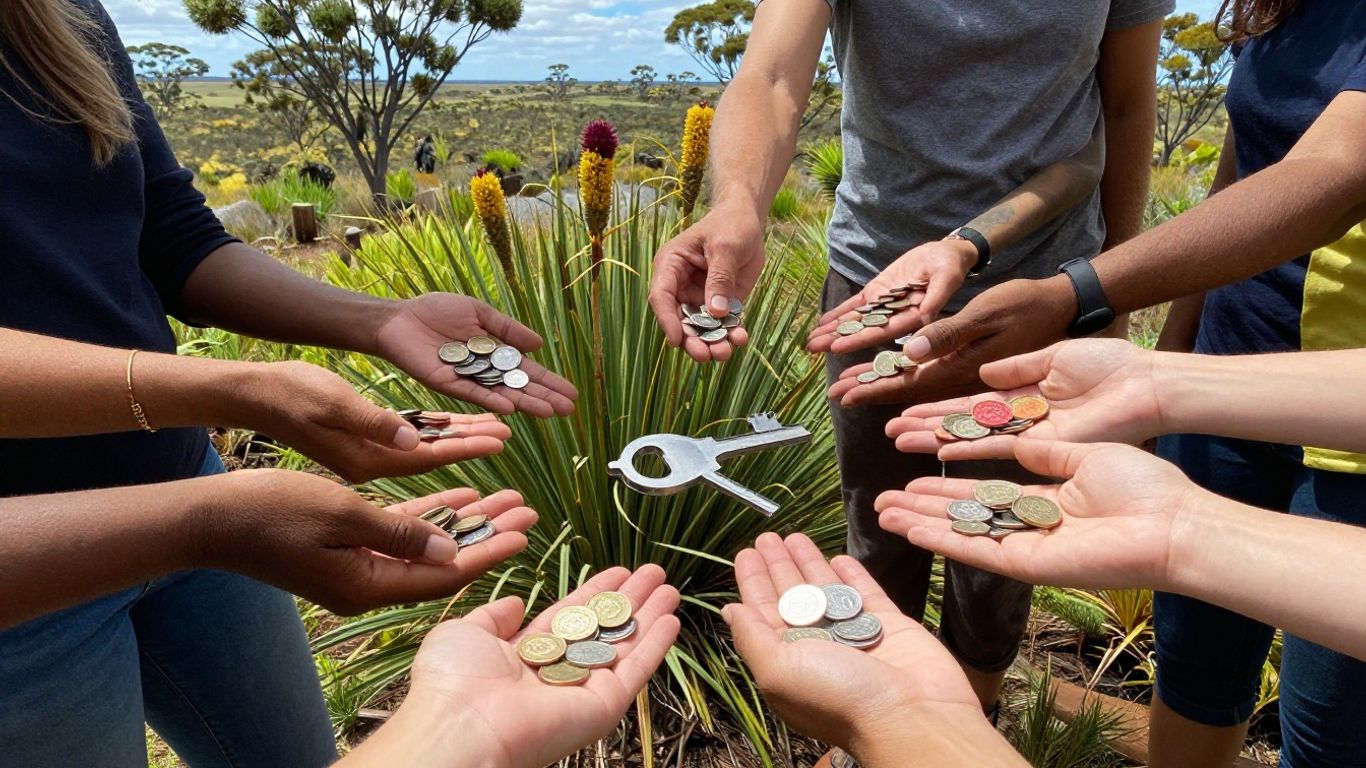Thinking about bringing your business ideas to Australia? It’s a great country for entrepreneurs. The Australia visa 188, specifically the Business Innovation and Investment stream, is a popular choice for many. It offers a pathway to permanent residency if you’re looking to start or invest in an Australian business. This guide will walk you through what you need to know, from eligibility to getting settled.
Key Takeaways
- The Australia visa 188, Business Innovation and Investment stream, is for people wanting to start or invest in an Australian business.
- You’ll need to meet certain age, English, and business/investment criteria.
- Getting nominated or endorsed by an Australian state or territory is usually a must.
- The application process involves gathering documents, applying online, and waiting for a decision.
- Once you arrive, understanding the local business culture and using support networks will help your venture succeed.
Understanding the Australia Visa 188
Business Innovation and Investment (Provisional) Visa Overview
The Business Innovation and Investment (Provisional) visa, subclass 188, is a pathway for people who want to own and manage a business in Australia or make a significant investment here. It’s a temporary visa, but it can lead to permanent residency if you meet certain conditions. Think of it as a stepping stone to setting up shop or investing down under. It’s split into a few different streams, each with its own focus, whether you’re looking to innovate, invest, or start something new with a unique idea.
Key Features of the 188 Visa
This visa is pretty flexible, designed to attract people with a proven business background or substantial investment capacity. The main idea is to get you contributing to the Australian economy. You’ll need to be nominated by an Australian state or territory government, or Austrade in some cases, which means you need to align with their economic development goals. The visa requires you to maintain a business or investment in Australia for the duration of your provisional stay.
Here’s a quick rundown of what’s generally involved:
- Nomination: You need endorsement from a state or territory government.
- Business/Investment: You must have a genuine intention to own and manage a business or make a designated investment.
- Stay: It’s a provisional visa, typically lasting for around four years.
- Pathway: Meeting specific criteria can allow you to apply for permanent residency through the Business Innovation and Investment (Permanent) visa (subclass 888).
Pathway to Permanent Residency
Getting the 188 visa is just the start. The real goal for most people is to transition to permanent residency. To do this, you’ll need to fulfil the specific requirements of the stream you applied under. This usually involves demonstrating that you’ve successfully established and actively managed a business in Australia or maintained your investment for a certain period. It’s about showing you’ve made a tangible contribution and are committed to continuing that in Australia. Successfully transitioning means you can live and work in Australia permanently, and it opens up more opportunities for your business and family.
Eligibility for the Australia Visa 188

So, you’re thinking about the 188 visa, eh? It’s a solid option for folks wanting to bring their business smarts to Australia. But before you start packing, you’ve got to tick a few boxes. It’s not just about having a good idea; there are some pretty specific requirements.
Age and English Proficiency Requirements
Generally, you need to be under 55 years old to apply for the 188 visa, though there are exceptions if your proposed business is of exceptional economic benefit to Australia. As for English, you’ll need at least a ‘competent’ level. This usually means scoring at least 6 on each band of the IELTS test, or an equivalent. It’s not about being fluent, but you need to be able to get by in business conversations.
Business and Investment Criteria
This is where things get a bit more detailed. Depending on which stream of the 188 you’re aiming for, the criteria change. For the Business Innovation stream, you’ll need to show you’ve had a successful business career and have a net business and personal asset value of at least AUD1.25 million. You also need to have an annual turnover of at least AUD750,000 in one of your main businesses. The Investor stream, on the other hand, requires you to make a significant investment in Australia, typically a minimum of AUD2.5 million in a designated investment or complying Australian investments. It’s all about demonstrating your capacity to contribute financially and economically.
Nomination and Endorsement Essentials
Most streams of the 188 visa require you to be nominated by an Australian state or territory government, or by Austrade on behalf of the Australian government. This nomination process is pretty important. You’ll need to submit an Expression of Interest (EOI) first, and if you’re successful, you’ll receive an invitation to lodge your visa application. Each state and territory has its own specific nomination requirements, so it’s worth doing your homework to see which one aligns best with your business plans. Some streams, like the Entrepreneur stream, require endorsement from a state or territory government, confirming your innovative business proposal.
Getting the nomination or endorsement sorted can take time, so it’s best to start looking into this early in your application journey. It shows the government you’ve got support on the ground.
The Entrepreneur Stream of the 188 Visa
This particular visa stream is for folks who have a cracking good idea for a new business and have managed to get a nod from an Australian state or territory government. It’s all about bringing innovative business concepts to life here in Oz. You’ll need to show you’re genuinely committed to getting your business off the ground or getting involved in an existing one. It’s not just about having an idea; it’s about having a solid plan and the drive to make it happen.
Innovative Business Commitment
To get this visa, you really need to prove you’ve got a solid plan for an innovative business. This means your business idea should be something new, or a significant improvement on something that already exists. Think about how your business will bring something fresh to the Australian market. It’s not enough to just say you’ll start a business; you need to show how it’s innovative and how it’ll benefit the economy. This could be through new technology, a unique service, or a different way of doing things.
State or Territory Government Endorsement
Getting endorsement from a state or territory government is a big step. Each state and territory has its own priorities and might be looking for businesses in specific industries. You’ll need to do your homework to see which government body aligns best with your business idea. They’ll want to see a detailed business plan and understand how your venture will contribute to their local economy, create jobs, or introduce new skills. It’s a bit like getting a personal recommendation, but from a government body.
Contribution to the Australian Economy
Ultimately, the government wants to see how your business will add value to Australia. This could be through creating jobs for locals, bringing in new technology or skills, or boosting exports. They’ll look at your business plan to see the projected economic impact. It’s important to be realistic about what you can achieve and how your business will grow over time. Showing a clear path to contributing to the economy is key to a successful application for the 188 Entrepreneur stream visa.
The Entrepreneur stream is a bit different from the other 188 visas. It’s really focused on the idea and the potential, rather than just a big pile of cash to invest. You need to be hands-on and ready to build something new.
Navigating the Application Process
So, you’ve decided to take the plunge and apply for the Business Innovation and Investment (Provisional) Visa, subclass 188. It’s a big step, and the application process can seem a bit daunting at first, but breaking it down makes it much more manageable. Getting your paperwork sorted is the absolute key here.
Gathering Essential Documentation
This is where you’ll spend a good chunk of your time. You need to collect a whole range of documents to prove you meet the visa requirements. Think personal identification like your passport, birth certificate, and marriage certificate if applicable. Then there’s the business side of things – evidence of your business ownership, financial statements, and details about your assets and turnover. You’ll also need to show proof of your English language ability, usually through a recognised test. Don’t forget police certificates and health examinations; these are standard for most Australian visas.
Submitting Your Online Application
Once you’ve got all your documents in order, it’s time to submit your application. This is done online through the Department of Home Affairs website. You’ll need to create an ImmiAccount if you don’t already have one. Fill out the application form carefully and accurately. Upload all your supporting documents in the correct format. It’s a good idea to double-check everything before you hit that submit button. You’ll also need to pay the application fee at this stage.
Understanding Processing Times
This is the part that requires a bit of patience. Processing times can vary quite a bit depending on the visa subclass, the complexity of your application, and the volume of applications the department is handling. It’s not uncommon for these visas to take several months, sometimes even longer. The Department of Home Affairs provides general processing times on their website, but remember these are just estimates. Staying organised and submitting a complete application from the start can help avoid delays. If you’re looking for assistance with your application, consider reaching out to a qualified team for a Discover Call.
It’s really important to be thorough with your documentation. Missing even a small piece of paper can cause significant delays or even lead to your application being refused. Take your time, get organised, and make sure everything is accurate and properly translated if needed.
Establishing Your Business in Australia

So, you’ve got your visa sorted and you’re ready to set up shop Down Under. That’s fantastic! But where do you even start? Australia’s got a pretty vibrant business scene, and figuring out the best way to fit in can feel a bit daunting at first. It’s not just about having a great idea; it’s about understanding the lay of the land.
Choosing Your Australian Business Hub
Australia’s a big place, and different cities and regions offer different advantages for businesses. Sydney and Melbourne are often the go-to for finance and tech, with lots of established networks and a competitive edge. Brisbane’s growing fast, especially in areas like advanced manufacturing and aerospace. Perth has strong ties to mining and resources, while Adelaide is making waves in defence and space industries. Even regional centres can be great, depending on your specific industry – think agriculture or tourism. Do your homework on which location best suits your business needs and lifestyle.
Adapting to the Local Business Culture
Australians generally value a pretty straightforward, no-nonsense approach to business. There’s a strong emphasis on work-life balance, so don’t expect everyone to be working crazy hours all the time. Fairness and equality are big too, so treating your staff well and fostering a positive workplace is key. Building relationships is important, but it’s often done in a relaxed, informal way – think casual chats over a coffee or a beer. It’s all about being genuine and building trust.
Leveraging Support Networks and Resources
Luckily, you’re not on your own. Australia has a stack of support for new businesses, especially for those coming through the business visa programs. You’ll find government agencies offering advice, business incubators and accelerators that can provide mentorship and even seed funding, and plenty of industry-specific associations. Networking events are everywhere, too. Connecting with other business owners, potential partners, and mentors can make a huge difference. Don’t be shy about reaching out; most people are happy to share their experiences. For those looking for tailored support, programs specifically for migrant entrepreneurs are available, offering guidance on everything from market research to scaling up. Remember, getting your Subclass 188 visa is just the first step; building a successful business takes ongoing effort and smart use of available resources.
Success Stories in Australian Entrepreneurship
It’s always inspiring to hear about people who’ve come to Australia and really made their mark. These aren’t just stories about getting a visa; they’re about building something from the ground up and contributing to our economy. Many entrepreneurs find that the Business Innovation and Investment (Provisional) Visa 188 provides a solid foundation for their Australian journey.
Insights from Migrant Entrepreneurs
We often hear about the big tech successes, but there are countless smaller, yet equally impactful, stories. Take, for instance, the founders of a sustainable fashion label who used their 188 visa to establish their brand in Melbourne. They focused on ethical sourcing and local manufacturing, tapping into a growing consumer demand for eco-friendly products. Their commitment to quality and sustainability quickly gained traction. They started with a small online store and have since opened a physical boutique, creating local jobs and contributing to the city’s retail landscape.
Another example is a family who arrived on the visa and started a specialised food import business. They identified a gap in the market for authentic European ingredients, building strong relationships with suppliers back home and establishing a distribution network across Australia. Their business has grown steadily, becoming a go-to source for chefs and home cooks alike.
Building a Business in Australia
What can we learn from these journeys? Several common threads emerge:
- Market Research is Key: Understanding what Australians want and where the opportunities lie is the first step. This means looking beyond just your own experience and really digging into local consumer behaviour and industry trends.
- Adaptability Matters: Being willing to adjust your business model to suit the Australian market is vital. This could mean changing your product offering, your marketing approach, or even your operational structure.
- Networking is Powerful: Connecting with other business owners, industry experts, and local communities can open doors you never knew existed. Don’t underestimate the power of a good conversation over a coffee.
- Utilise Support: Australia has various programs designed to help new businesses. From government grants to industry-specific incubators, there’s a lot of help available if you know where to look. For example, programs like Catalysr specifically support migrant entrepreneurs.
Starting a business in a new country is never a walk in the park. It requires resilience, a willingness to learn, and a solid plan. But with the right visa and a determined approach, the rewards can be immense, both personally and professionally.
So, What’s Next?
Getting a visa for Australia to start or grow your business is a big step. We’ve looked at a few options, like the 188 visa, and what it takes to get them. Remember, each visa has its own rules, so do your homework. Think about where you want to settle, like Sydney or Melbourne, as they have a lot going on for new businesses. It’s not just about the visa; it’s about setting yourself up for success once you’re here. Connect with people, learn the local way of doing things, and don’t be afraid to ask for help. Australia’s a great place for business, and with the right planning, you can really make it work.
Frequently Asked Questions
What exactly is the Australia Visa 188?
The Business Innovation and Investment (Provisional) visa, or subclass 188, is for people who want to start or buy a business in Australia, or make an investment. It’s a temporary visa that can lead to permanent residency if you meet certain conditions.
Am I likely to qualify for the 188 visa?
To be eligible, you generally need to be under 55 years old, have good English skills, and have a successful business or investment background. You also need to be nominated by an Australian state or territory government, or Austrade for certain streams.
Can this visa lead to permanent residency?
Yes, the 188 visa is a stepping stone. If you successfully establish and run a business or maintain an investment in Australia for a certain period, you can then apply for a permanent residency visa, like the subclass 888.
What’s the deal with the Entrepreneur Stream?
The Entrepreneur stream is for folks with a great, innovative business idea. You need to show you’re serious about starting this business in Australia and have support from a state or territory government.
What sort of paperwork do I need to apply?
You’ll need lots of documents, like proof of your identity, business history, financial records, and the nomination or endorsement letter. It’s a good idea to get everything organised well before you apply online.
Where’s the best place in Australia to start a business?
Sydney and Melbourne are popular choices because they have strong economies and lots of support for new businesses. However, other cities and regions also offer great opportunities depending on your industry.





